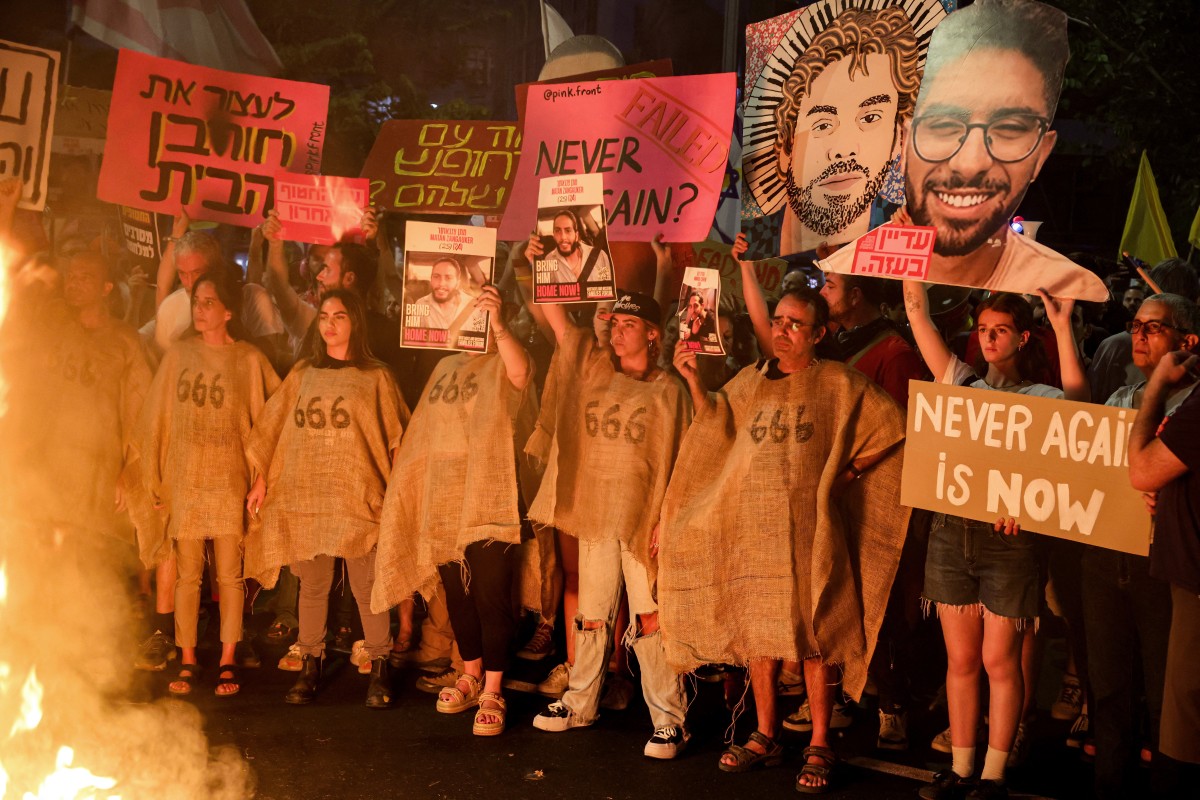Israeli Prime Minister Benjamin Netanyahu is set to unveil a new Gaza war strategy aimed at completely dismantling Hamas and securing the release of the remaining hostages — a plan widely reported to include a full military reoccupation of the entire Gaza Strip.
According to Israeli media, Netanyahu will meet with top military and defense officials, including the army chief of staff and ministers, to issue fresh directives. Public broadcaster Kan reported that Netanyahu intends for the Israeli army to "conquer the entire Gaza Strip," while Maariv headlined the shift as: "The die is cast. We’re en route to the total conquest of Gaza."
While not officially confirmed, the reported plan has already sparked sharp criticism from both Hamas and the Palestinian Authority. Hamas spokesperson Husam Badran told Al Jazeera, “We want to reach an agreement that ends the war. The ball is now in the hands of Israel and the Americans, who support Israeli positions and delay the conclusion of an agreement.”
The move comes as the war — sparked by Hamas’s October 7, 2023, attacks that killed 1,219 Israelis and led to mass kidnappings — enters its 22nd month. In response, Israel launched a massive military campaign in Gaza, leaving more than 60,933 Palestinians dead, according to the Hamas-run health ministry. The humanitarian toll continues to mount, with aid agencies warning of widespread famine among Gaza’s 2.4 million residents.
Netanyahu faces intense domestic and international pressure. Families of the 49 remaining Israeli hostages are demanding a ceasefire and accuse the government of endangering their loved ones. Internationally, humanitarian groups continue to call for a truce, while several European nations move toward recognizing a Palestinian state — a step strongly opposed by Israel and the United States.
At the same time, Netanyahu’s far-right coalition partners are pushing for a complete reoccupation of Gaza and tighter control over the occupied West Bank, viewing the conflict as a chance to reshape territorial control.
Israeli Foreign Minister Gideon Saar was in New York on Tuesday for a UN Security Council session, where Israel sought to refocus global attention on the plight of hostages rather than the worsening humanitarian crisis in Gaza.
Meanwhile, in a notable shift, Israel announced it would partially reopen trade with Gaza through vetted private merchants — a move aimed at reducing reliance on UN aid convoys and foreign airdrops. The new mechanism, managed by the Israeli civil-military body COGAT, will allow limited imports of food, baby formula, hygiene products, and other essentials under strict security checks.
Deliveries will be funded through monitored bank transfers, with COGAT emphasizing that the process is designed to prevent any benefit to Hamas. The decision follows a partial easing of the blockade imposed on March 2 and comes amid growing concerns of famine confirmed by multiple UN reports.
Despite all pressures, Netanyahu has stood firm. “The war’s goals remain: the defeat of the enemy, the release of our hostages, and the assurance that Gaza will no longer pose a threat to Israel,” he said on Monday.
Still, cracks are showing within Israeli society. Hundreds of retired military and security officials have reportedly urged the U.S. to intervene diplomatically, arguing that Israel has already achieved its military objectives and must now focus on hostage negotiations.
Hostage families, increasingly vocal, have condemned any move to escalate the conflict, warning it could jeopardize the lives of their loved ones. Their fears are echoed by disturbing propaganda videos from Hamas and Islamic Jihad showing emaciated hostages — a chilling reminder of the human cost of continued conflict.




